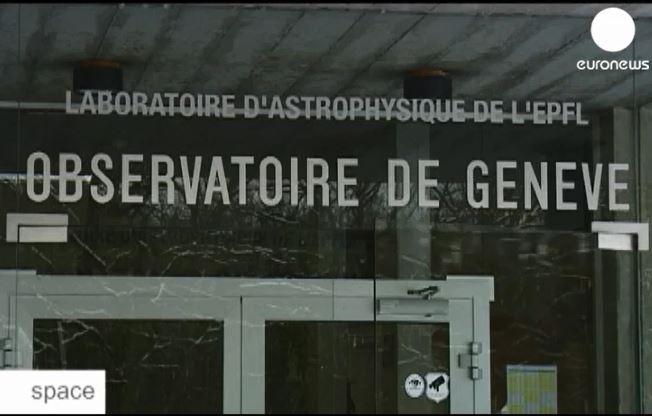
Big sister for Earth found in neighbouring system

An exoplanet barely three times the mass of Earth has been discovered by an international team of astronomers including from Geneva. It is the third-closest exoplanet to our solar system.
Examining the atmospheres of exoplanets (planets outside the solar system), especially those resembling the Earth, is one of the main goals of astronomy. This is even harder when the planet is small, said the University of Geneva (UNIGE).
“In the coming years, observations enabling analysis of the atmospheres of Earth-like exoplanets will be possible only if the exoplanet is close to us,” explained Nathan Hara, researcher in UNIGE’s department of astronomy.
The new exoplanet, GI411b, is in orbit around star GI411, located eight light-years from our solar system, in the constellation Ursa Major.
To search for planets, the astronomers who made the discovery used the SOPHIE spectrographExternal link, developed partly at UNIGE and commissioned 12 years ago. This instrument is installed on the 193cm telescope of the Haute-Provence Observatory in France, the same telescope that allowed the discovery of the first extra-solar planet by Swiss astrophysicist Michel Mayor in 1995.
Small movements
By measuring very precisely the speed of the GI411 star at 155 moments spread over several years, SOPHIE detected very small movements. An in-depth study has shown that they are caused by a planet as it follows its orbit around the star.
The most likely orbital period is 13 days, which implies a distance between the planet and the star equal to 0.08 AU (an astronomical unit equal to the distance between the Earth and the Sun). GI411b is thus five times closer to its star than Mercury is from our Sun, according to the study published in the journal Astronomy & AstrophysicsExternal link.
Although the GI411 star is much cooler than the Sun, its planet is so close that it still receives 3.5 times more energy than the Earth. The planet GI411b is therefore not in the habitable zone of its star and it is likely that it has more in common with Venus than with the Earth, the scientists concluded.

More
In search of worlds outside our Solar System

In compliance with the JTI standards
More: SWI swissinfo.ch certified by the Journalism Trust Initiative






























You can find an overview of ongoing debates with our journalists here . Please join us!
If you want to start a conversation about a topic raised in this article or want to report factual errors, email us at english@swissinfo.ch.